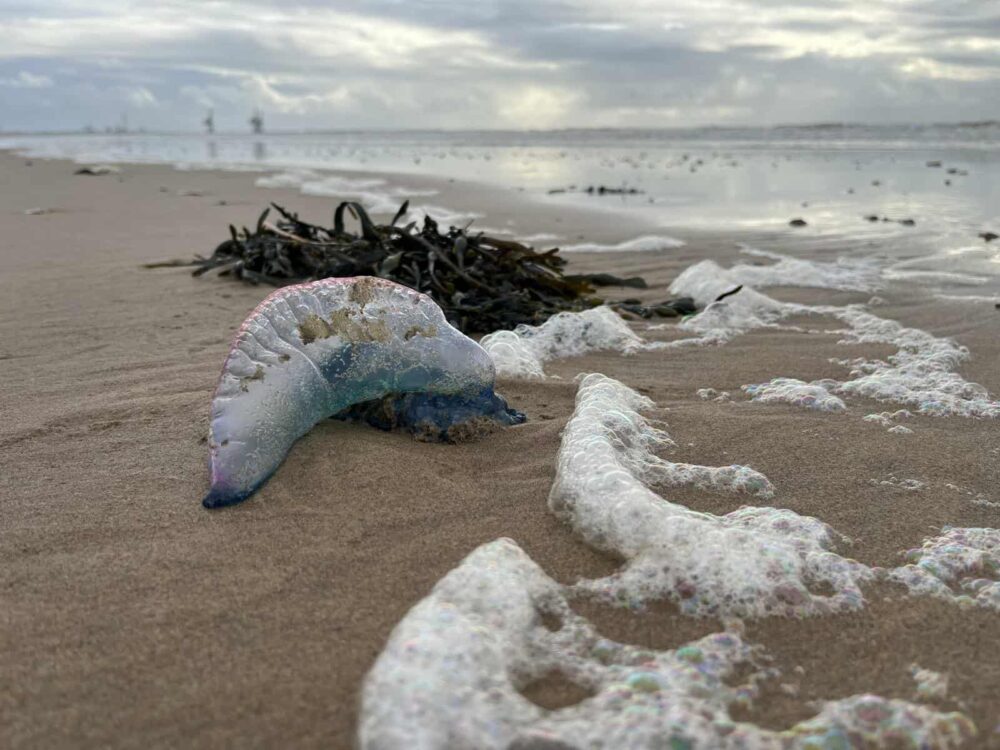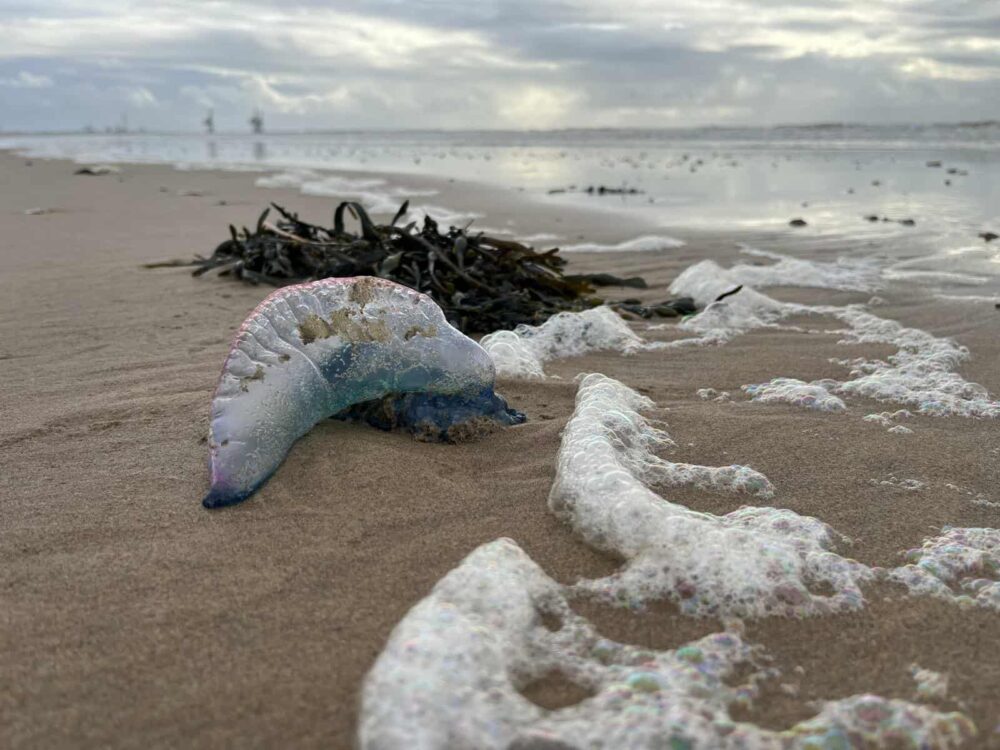 Image: Port Talbot Coastguard on Facebook
Image: Port Talbot Coastguard on Facebook
A south Wales coastguard team has issued a safety warning after a sighting of a Portuguese Man O’ War at a local beach.
Port Talbot Coastguard made the warning via its Facebook page yesterday (1 November) about the venomous jellyfish, found at Aberavon Beach.
Portuguese Man O’ War, also known as bluebottle jellyfish, are commonly found in warmer seas sometimes in groups of thousands. They drift on ocean currents, meaning strong winds can push them towards the UK coast.
The coastguard also shared safety advice, should visitors to the beach encounter the jellyfish, writing: “Do not touch them – even if they appear dead. Their tentacles can still deliver a painful sting.
“In a coastal emergency, call 999 and ask for the Coastguard.”
They added that, if stung, visitors should:
Rinse the affected area with seawater (not fresh water)
Remove any tentacles carefully using a credit card or similar object
Immerse the area in hot water (as hot as can be tolerated) for at least 30 minutes to help neutralise toxins
Seek medical advice by requesting HM Coastguard or a doctor.
Residents did not seem particularly worried about the sighting, however, taking to the comments in their hundreds.
While one commenter asked “What is it? A jellyfish? Pretty colour”, others offered advice such as “Keep your dogs on leads because they are nosy enough to investigate what it is and get stung.”
Many saw the funny side, with one commenter writing, “Looks like something from the Ann Summers collection!!!” and the top comment reading, “They will sort out them cold water swimmers.”
Wild Swimming Cornwall shared that it is normal to see the jellyfish on the west coast of Britain in autumn, “when south westerly storms blow them in from the Atlantic.”
Advising on how to identify the Man O’ War, they wrote: “The balloon or sack part of a Portuguese Man o’ War is easy to spot.
“Reaching up to six inches in height and bright blue or purple in colour you can see it from a distance. However, their long trailing tentacles can reach up to 50 metres long and are much more difficult to see. Near invisible to spot in the water, these tentacles can become detached from the float and pose a hidden threat.
“It’s also worth knowing that at times they deflate and submerge themselves under the water’s surface in order to avoid predators.
“Keep an eye out for them tangled in seaweed or on rocks.”
Port Talbot Coastguard signed off their message writing: “Stay safe and please share this message to help keep others informed.”
Support our Nation today
For the price of a cup of coffee a month you can help us create an
independent, not-for-profit, national news service for the people of Wales, by
the people of Wales.

